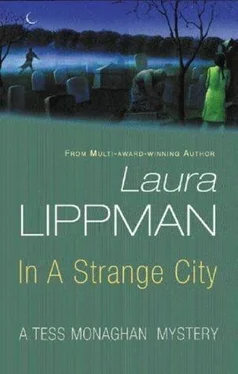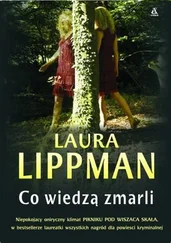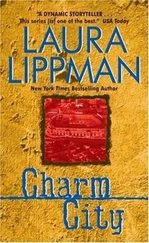“A mere ten minutes of your time,” he wheedled. “Can’t we go inside, where I can tell you what I’m proposing?”
She wouldn’t have a stranger in her house, not even on a normal morning, and this morning had veered beyond normal hours ago. She was fussy about her home. It was for friends and family, not business, never business.
But Yeager was going to be hard to shake, if she didn’t go through the motions of giving him what he wanted. What if he kept coming back, now that he knew where she lived?
“There’s a coffee shop at the foot of the hill, on Cold Spring Lane. The Daily Grind. I was going to fuel up down there before heading in to work. I’ll give you exactly one cup of coffee to make your pitch, whatever it is.”
“The Daily Grind? Cute name. But is the coffee any good? I have to admit, Starbucks has totally spoiled me. I need my decaf double latte with skim to start the day.”
“I think you’ll be able to make do.”
***
Tess had lived in her new neighborhood for ten months. This North Side outpost of the Daily Grind had been part of her routine for nine months, three weeks, and six days. She had started going there in the early days of renovating her house because she wanted to eat a dust-free breakfast, and she had just never stopped. It was a one-of-a-kind place, a neighborhood crossroads where students, North Baltimore bohemians, and very proper Roland Park types all converged. Local art hung on the walls, and there was a fake grotto with a waterfall and a gazing globe set on a pedestal. The most recent addition was the “Elvis sofa,” a huge white-velour sectional with gold trim, which made Tess feel as if she were on the set of the Merv Griffin show. The orange juice was fresh, the coffee exquisite. Tess’s only grudge against the Daily Grind was that it didn’t open before 7 a.m. She would have welcomed an early cup of coffee in the warm weather months, when she headed out at 6 a.m. to row.
“Funky,” Jim Yeager said. He never sounded quite sincere, perhaps because of his overweening self-awareness. It was as if he played back every moment of his life on a little monitor in his head, allowing him to assess, instantly, every facial expression and vowel sound. “Not what I expected in Baltimore.”
“Let me guess.” Tess handed her battered go-cup to Glenn, the gregarious chef who was one of the Daily Grind’s chief draws. No snooty barristas here, just Glenn and his partner, Travis, and a rotating army of pretty girls and handsome boys who maintained the right degree of chipperness, depending on the hour: mellow in the morning, perky in the afternoon, laid-back in the evening. “When you think of Baltimore -which I’m sure you just loooooooove-you think of the Inner Harbor, Camden Yards, steamed crabs, and Little Italy. Oh, and don’t forget those white marble steps and dem O’s.”
Jim Yeager looked puzzled. “Well, yes. I mean, I do love to go to Oriole games, and we often go to Little Italy or O’Brycki’s afterward.”
“How would you feel if we met at a party and I said, ”I just looooooooooove Washington, D.C., with all its cool monuments and the cherry blossoms and that wonderful restaurant, Duke Ziebart’s, that Larry King is always talking about‘?“
“Duke Ziebart’s is closed and Larry King is an ass.”
“Exactly.”
They took a booth toward the back, near the makeshift bookshelves and the portable CD player, where Blossom Dearie was whispering her way through the morning. The current art on display was from the Baltimore Glassman, a so-called visionary artist-Tess disliked the term, it smacked of patronage-who made whimsical placards from magazines, glitter, and the never-dwindling supply of broken glass found in Baltimore ’s streets. Crow had given her one of his pieces for Christmas, a stunning Statue of Liberty who lifted her lamp in what would one day be the dining room.
“Interesting,” Yeager said, of the piece that hung over their heads, a smiling man in red pants and turquoise shirt, pouring something into a cup over the legend: hot coffee on a cold day/you don’t say.
“So, here’s my proposition,” Yeager began, only to be interrupted by a cell phone buzzing somewhere, muffled by material. “You or me?”
“You. I turn mine off when I’m talking to someone,” Tess said pointedly.
He patted his pockets, found his phone, flipped it open, and looked at the number. “No one I need to talk to right now.”
“If you think about it,” Tess said, “how many people do you need to talk to right now? I mean, other than a family emergency, or someone from your work, announcing that you have a chance to sit down with the freak of the week if you’ll come to the studio right this minute, how accessible do you need to be? Isn’t voice mail adequate to meet most of your needs?”
He gave her his puzzled look again, a practiced expression that must have been used to ponder imponderables from a whole gamut of people in the news. “But you have a cell phone, too. You just said.”
“I’m often away from phones for long stretches, doing surveillance. But I never speak on it while I’m driving. And I don’t interrupt conversations with live people in order to answer it, unless I’m expecting an urgent call, which I almost never am. My rules, developed for me. I don’t expect the rest of the world to follow.”
Yeager sipped his latte. She could tell he was surprised by how good it was, but he knew better now than to go all wide-eyed over Baltimore ’s ability to produce a decent cup of coffee. He was looking thoughtful. Looks can be deceiving.
“What did you mean when you made that crack about ”freak of the week‘? I do a serious news show. I interview politicians and pollsters, informed journalists. I don’t trot out trailer trash in search of their fifteen minutes of fame.“
“Well, I don’t have cable”-the sad look on Jim Yeager’s face was notable for its authenticity and purity- “but I’ve read about your show in the papers from time to time and caught snippets when someone insists on putting it on in the gym. Didn’t you recently have on that husband of the big Hollywood star, the guy who impregnated his daughter-in-law and then fought the divorce, holding his wife up for a big cash settlement?”
“There were serious legal issues involved in that case. We had some of the country’s top legal minds on-”
“Top legal minds? Oh, you mean the woman who lost the easiest murder trial of the last century while the whole world watched, and that guy who wears the fringe jacket. You know, that’s what I want in a lawyer. A guy in a buckskin jacket who’s always on television.”
Yeager smiled. “You’re a former print reporter, right?”
He had surprised her. She wouldn’t have expected a self-created television “personality” such as Yeager to do any research. She assumed he had a producer who did all the messy digging for facts.
“A long long time ago. Except for a few painful flashbacks here and there, I barely remember my misspent youth.”
“How did you become a private investigator?”
“I was in the wrong place at the wrong time.” She had meant to be flippant, but the remark opened an old door in her head, a door she tried to keep closed at all times. She was reminded, with a painful acuity, of that autumn when everyone around her seemed to die.
“What’s your connection to the Poe shooting?”
“None.”
“I have a source.” He delivered a lawyerly glare, the lookthatGregoryPeckandRaymondBurrand Spencer Tracy had used as, respectively, Atticus Finch and Perry Mason and Clarence Darrow. “I have a source who tells me you’re an eyewitness.”
“Is your source a homicide cop with more teeth than a piano has keys?”
Читать дальше












